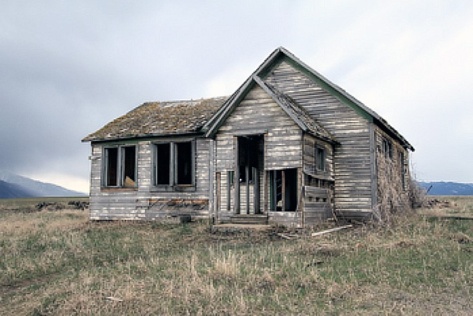
Last fall I spent several weeks in Berkshire County, Massachusetts, where I had lived for more than three decades prior to my relocation to a new job in Santa Fe four years ago. Berkshire County is the farthest west and most rural county of Massachusetts. For New Yorkers and Bostonians, the Berkshires are known for their fields, forests, and outstanding cultural amenities, including the Tanglewood Music Festival in Lenox, the Clark Art Institute and Williams College in Williamstown, and the Massachusetts Museum of Contemporary Art in North Adams.
These are all wealthy, world-class institutions, yet under the glitz lies a darker reality. As a recent article in the Boston Globe points out, poverty in Berkshire County has risen by nearly a third since 2000. The median age is rising as younger people leave for places with better job prospects, meaning that the population will continue to be older and sicker and poorer in the coming years. I caught a glimpse of this in a visit to Berkshire Mall in Lanesboro, the only major shopping center within 30 miles of Williamstown. Having been away for awhile, I was shocked by the mall’s post-apocalyptic vibe now that most of its anchor stores have packed up and left. The county’s economic decline helps to explain why the value of the house that my wife and I still own in Williamstown has declined by as much as 20 percent in the past five years.
To some extent the hollowing out of a place that I love has been under way for decades. In common with many once-prosperous smaller towns and villages in the northeast, the factories began to close nearly a century ago, a process that accelerated in the middle of the twentieth century. In the Berkshires, manufacturers of textiles, shoes, furniture, plastics, and electronics moved south, then offshore. Despite this change, in the 1980s and 90s, real estate prices rose dramatically. The Great Recession put a stop to that, and the economic arc has trended down ever since.
Journalists and to a lesser extent social scientists have now begun to take notice of this situation and assess its implications. (For examples, see this and this.) What caught the eye of many of them was the impact that rural and small-town voters had on the election of Donald Trump in 2016. According to the Washington Post, rural counties favored Trump by 26 points, whereas urban ones voted for Hillary Clinton by a 32 point margin. (Berkshire County was an exception to that pattern, favoring Clinton 67.5% to 27%, a majority consistent with Massachusetts as a whole.)
So far, I haven’t seen much ethnography focused on dying towns and rural areas. Notable exceptions include Christina Walley’s Exit Zero (which documents the travail of a deindustrializing urban neighborhood rather than a rural one) and Arlie Russell Hochschild’s much celebrated Strangers in Their Own Land. Reaching back to a time before the current political kerfuffle are books like Katie Stewart’s memorable A Space on the Side of the Road (1996). There are doubtless other insightful works with which I’m not familiar. Still, it’s hard not to get the sense that most ethnographers prefer to embed with embattled urban minorities—African Americans, Latinos, heroin addicts, LGBTQ youth—rather than with alienated and often angry white people hunkered down in blighted communities. There is little question, though, that their sense of economic and social abandonment is a major factor in our nation’s current political malaise. People who feel that they have nothing to lose aren’t likely to put much stock in the niceties of civil debate and dignified leadership.
For an upbeat view of a small American town that has managed to maintain its vitality despite the social and economic headwinds, don’t miss Larissa MacFarquhar’s article on Orange City, Iowa (“Where the Small-Town American Dream Lives On,” published in the New Yorker in November 2017). As MacFarquhar points out, Orange City is about as politically conservative a place as one can find in the US, yet it doesn’t seem to have embraced the bonkers anti-government and anti-immigrant ideology that has gained traction in other parts of the country. Therein lies a ray of hope.
Addendum, 2/19/2018. Just happened upon a new book by sociologist Robert Wuthnow that addresses the sense of abandonment that afflicts much of rural America. Wuthnow is one of the most prolific and reliably insightful sociologists of America working today. A book not to be missed for anyone interested in this issue.

You must be logged in to post a comment.